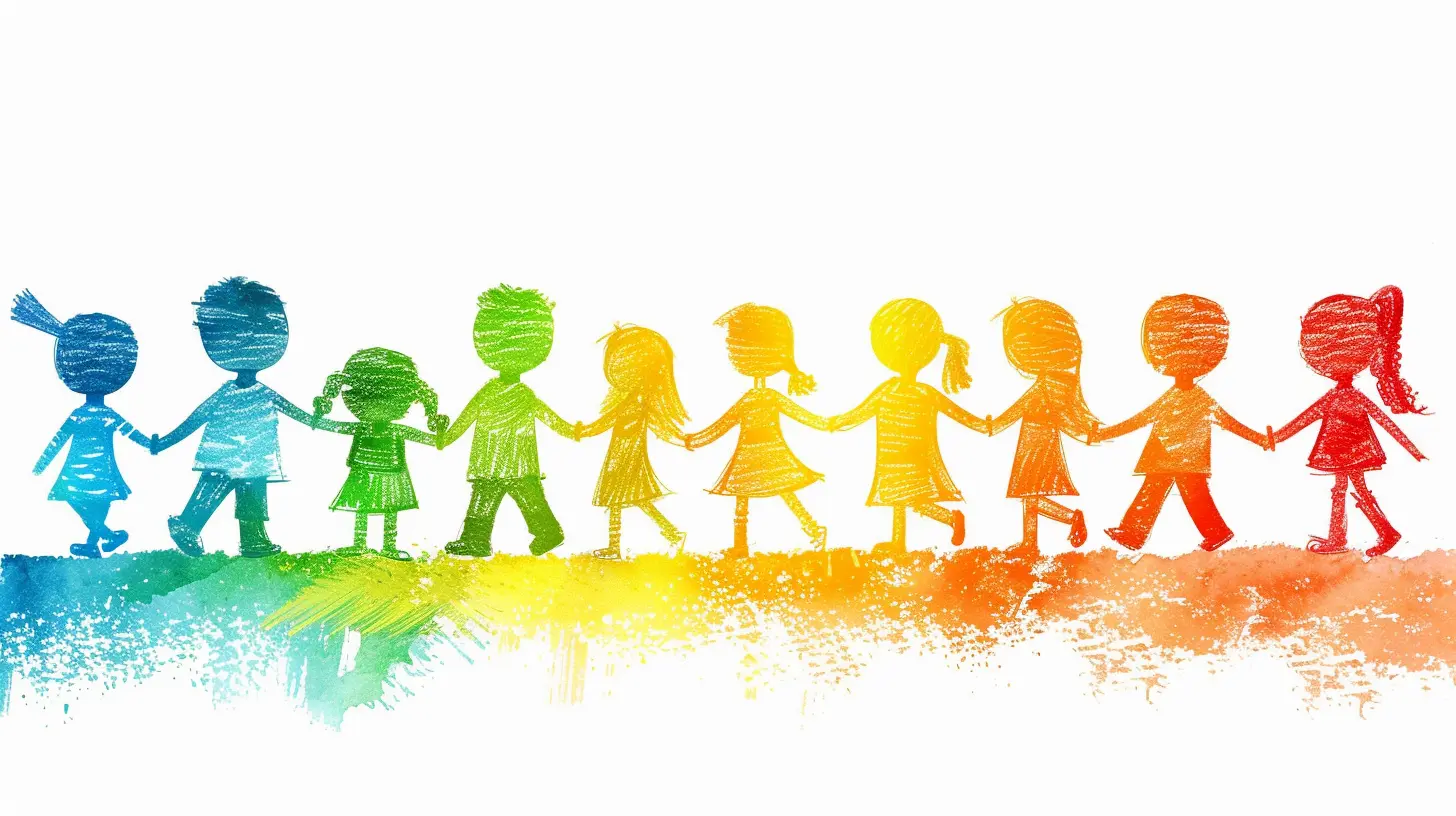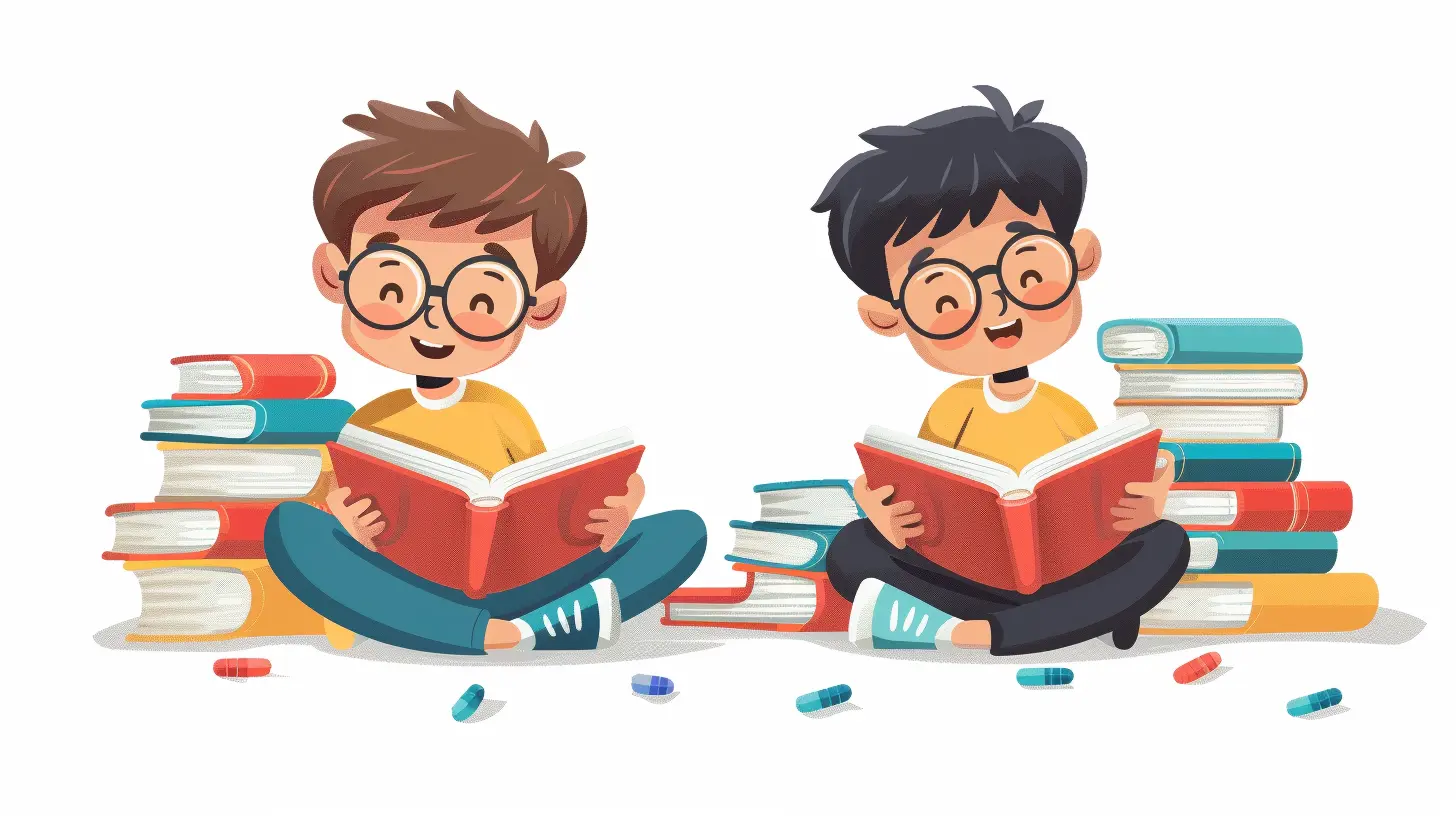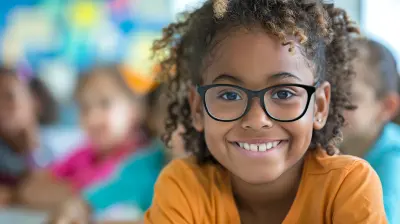Fostering Student Independence with Peer Tutoring
23 July 2025
Ever noticed how students sometimes learn more from each other than from a teacher? There’s something magical about peer-to-peer learning—it’s relatable, engaging, and, most importantly, empowering. We've all been there: struggling with a concept, only to have a classmate explain it in a way that just clicks. That’s the beauty of peer tutoring, and it plays a huge role in fostering student independence.
But how exactly does peer tutoring help students become more independent learners? Let’s break it down. 
What Is Peer Tutoring?
Simply put, peer tutoring is when students teach and learn from each other. Instead of solely relying on teachers, students take an active role in their own learning and that of their peers.This can happen in various ways:
- One-on-One Tutoring: A student who excels in a subject helps another who’s struggling.
- Group Tutoring: A small group of students work together, teaching and learning collectively.
- Reciprocal Peer Tutoring: Students take turns being the tutor and the learner.
No matter the format, the central idea remains the same—students helping each other to master academic concepts while developing essential life skills. 
Why Peer Tutoring Builds Independence
Independence doesn’t just mean working alone—it means having the confidence and skills to tackle challenges without always needing external help. Here’s how peer tutoring fosters independence:1. Encourages Active Learning
In traditional classrooms, students passively receive information from their teachers. In peer tutoring, they actively engage with the material. When students explain concepts to their peers, they internalize knowledge more deeply than if they were just memorizing for a test.Think about it—have you ever truly understood something only after you had to teach it to someone else? That’s the power of teaching to learn.
2. Promotes Critical Thinking
When students tutor each other, they don’t just repeat what they’ve learned—they analyze, simplify, and present information in a way that makes sense to their peers. This process hones critical thinking skills, making students more self-reliant in problem-solving.Instead of giving up when they hit a roadblock, they learn to ask:
- How can I break this down into simpler parts?
- What strategy can I use to find the answer?
- What questions can I ask to clarify my understanding?
This mindset carries over to other aspects of learning and life, making students more adaptable and resourceful.
3. Boosts Confidence and Self-Efficacy
Confidence plays a massive role in student independence. Many students doubt their abilities, but peer tutoring helps break this cycle. When students successfully tutor a peer or grasp a challenging topic on their own, their confidence skyrockets.They begin to realize, Hey, I can do this on my own! That belief in their own ability—also known as self-efficacy—is key to lifelong learning.
4. Develops Communication and Leadership Skills
Ever noticed that kids who tutor others often become better communicators? That’s because explaining a concept requires clarity, patience, and adaptability. These are skills that help students not only in school but also in their future careers.Plus, mentoring a peer builds leadership skills. They learn to take responsibility, guide others, and provide constructive feedback—traits that will serve them well beyond the classroom.
5. Reduces Dependence on Teachers
Traditional learning often creates a cycle of reliance on teachers. While educators are essential, students shouldn’t feel that their only source of knowledge is an adult in the room.Peer tutoring shifts this dynamic, making students realize that learning isn’t a one-way street. They become comfortable seeking help from peers instead of always waiting for teacher intervention. 
How to Implement Peer Tutoring in Schools
Now that we know why peer tutoring is a game-changer, how can schools integrate it effectively?1. Pair Students Strategically
The right pairing makes all the difference! Match students based on:- Strengths and weaknesses in different subjects.
- Learning styles (visual learners with verbal learners, for example).
- Personalities—some students thrive with structured guidance, while others need a more laid-back approach.
2. Set Clear Goals and Expectations
Without structure, peer tutoring can turn into casual chatting. Set clear objectives like:- The tutor should guide, not give answers outright.
- The learner should ask questions and attempt problems independently before seeking help.
- Each session should have a goal, whether it's mastering a math concept or practicing essay writing.
3. Provide Training and Resources
Not all students naturally know how to tutor effectively. Schools can offer:- Basic tutoring strategies (such as the "explain, write, and apply" method).
- Training sessions on patience, communication, and encouragement.
- Access to study guides, question prompts, and online resources.
4. Encourage a Growth Mindset
A growth mindset is the belief that intelligence and abilities can develop with effort. Peer tutoring thrives in an environment where making mistakes is seen as part of learning, not a failure.Remind students:
- It’s okay to struggle; that’s how we grow.
- Nobody is perfect, even the tutor!
- Learning is about progress, not perfection.
5. Monitor Progress and Give Feedback
Teachers should check in periodically to ensure peer tutoring is effective. Some strategies include:- Having students reflect on their tutoring experience.
- Encouraging feedback both ways: What worked? What could improve?
- Adjusting pairings if needed to ensure the best learning experience.

The Long-Term Impact of Peer Tutoring
Peer tutoring doesn’t just improve grades—it builds lifelong skills. The independence students develop through peer learning prepares them for:- Higher education: College students must be self-motivated and resourceful.
- The workplace: Teamwork, communication, and problem-solving are invaluable in any career.
- Everyday life: The ability to research, analyze, and articulate ideas helps in countless real-world scenarios.
In short, peer tutoring empowers students to take charge of their own learning—and that’s a gift that lasts a lifetime.
Final Thoughts
Peer tutoring is more than just a study technique—it’s a mindset shift that transforms students into independent, confident learners. It teaches them that they aren’t just passive recipients of knowledge but active participants in their own education.So, whether you’re a student, teacher, or parent, consider the power of peer tutoring. It might just be the missing piece in the puzzle of academic success!
all images in this post were generated using AI tools
Category:
Peer TutoringAuthor:

Zoe McKay
Discussion
rate this article
1 comments
Zyana Duke
This article insightfully highlights the benefits of peer tutoring in promoting student independence. By empowering learners to teach and support one another, we cultivate a collaborative environment that not only enhances academic skills but also builds confidence and essential interpersonal abilities.
August 12, 2025 at 12:34 PM

Zoe McKay
Thank you for your insightful comment! I’m glad you found the article highlights the importance of peer tutoring in fostering independence and collaboration among students.


